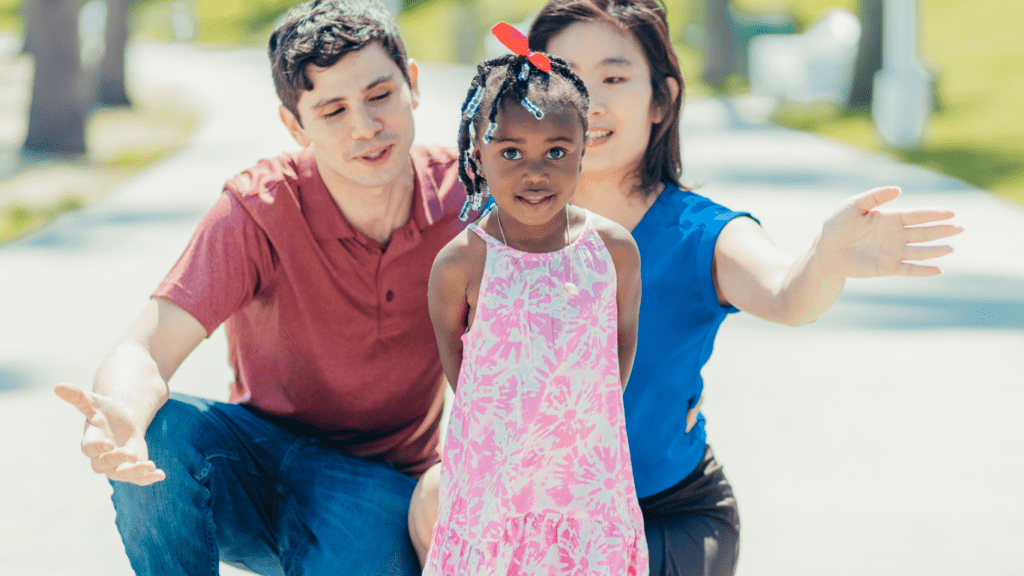As a parent, I often wonder how to equip my child with the tools they need to navigate life’s challenges. One powerful approach is fostering a growth mindset. This concept, popularized by psychologist Carol Dweck, emphasizes the belief that abilities and intelligence can be developed through dedication and hard work.
Instilling this mindset in my child can pave the way for resilience and a lifelong love of learning. In a world that constantly demands adaptability and innovation, nurturing a growth mindset can be a game changer. It helps kids embrace challenges, learn from criticism, and find inspiration in others’ success.
By focusing on effort rather than innate talent, I can encourage my child to view setbacks as opportunities for growth. Let’s explore practical strategies to cultivate this valuable mindset and set our children up for success.
Understanding Growth Mindset
A growth mindset reflects the belief that abilities and intelligence can be cultivated through effort and perseverance. This perspective fosters resilience, adaptability, and a passion for learning in children.
Definition of Growth Mindset
A growth mindset, established by psychologist Carol Dweck, defines the belief that talents can be developed with time and dedication. Children with this mindset view challenges as opportunities for growth, embrace learning, and understand the value of persistence.
They recognize that their current abilities do not dictate their potential; intelligence and skills can evolve through commitment and practice.
Benefits of a Growth Mindset
A growth mindset offers numerous benefits to children, including:
- Increased Resilience: Children become more resilient, readily bouncing back from setbacks and viewing failures as learning opportunities.
- Enhanced Motivation: Children display greater motivation to tackle challenges, as they feel empowered to improve through effort.
- Stronger Learning Engagement: Children engage more deeply with learning, finding joy in the process rather than just the outcomes.
- Better Coping Strategies: Children develop effective coping strategies for overcoming difficulties, fostering a positive attitude toward obstacles.
- Improved Academic Performance: Children who embrace a growth mindset often achieve higher academic performance, as they dedicate themselves to continuous improvement.
Encouraging a growth mindset lays a solid foundation for lifelong learning and adaptability in an ever-changing world.
Strategies to Promote a Growth Mindset
Fostering a growth mindset in children involves practical strategies that encourage resilience and a love for learning. Here are key methods to implement:
Encourage Effort Over Results
Encouraging effort over results helps children focus on the process. Praise their hard work, perseverance, and strategies rather than just their intelligence or achievements. For instance, saying, “I noticed how much time you spent practicing that” reinforces the value of effort. This approach builds self-esteem and highlights that improvements come from diligence.
Embrace Challenges and Setbacks
Embracing challenges and setbacks teaches children to view difficulties as essential to growth. Encourage them to take risks, equipping them with coping mechanisms when faced with failure. When they encounter obstacles, ask questions like, “What did you learn from this experience?” This shifts their perspective from fear of failure to seeing issues as stepping stones for development.
Role of Parenting in Development
Parenting plays a crucial role in shaping a child’s growth mindset. Through intentional actions and communication, parents can foster an environment that encourages resilience and a love for learning.
Modeling a Growth Mindset
Modeling a growth mindset involves demonstrating how to embrace challenges and learn from failures. Parents can share personal experiences where effort led to improvement. For instance, discussing a skill I struggled with emphasizes the value of perseverance.
Highlighting the learning process, rather than just the outcome, reinforces the idea that challenges are opportunities for growth. Displaying a positive attitude towards mistakes teaches children that errors contribute to learning.
Communication Techniques that Support Growth
Using specific communication techniques can significantly impact a child’s mindset. First, praising effort instead of innate talent encourages children to recognize the importance of hard work. Second, asking open-ended questions fosters critical thinking.
Questions like, “What did you learn from that experience?” prompt children to reflect on their learning journey. Third, normalizing mistakes creates an environment where trial and error feels safe. For example, saying, “It’s okay to struggle; that’s part of getting better,” reinforces that growth comes from persistence.
Activities to Foster Growth Mindset
Implementing activities that promote a growth mindset can significantly enhance a child’s ability to learn and adapt. Here are effective strategies for nurturing this mindset through specific activities.
Goal Setting and Reflection
Setting clear, achievable goals fosters a sense of direction. I encourage children to establish short-term and long-term goals in areas like academics, sports, or hobbies. Guide them to break these goals into smaller, manageable tasks. For example:
- Specific Goals: Define clear objectives, like improving math grades by one letter.
- Measurable Goals: Use checkpoints to assess progress, such as weekly quizzes or practice sessions.
- Reflection: After reaching goals, facilitate discussions on what worked, what didn’t, and the lessons learned. Journaling can be an effective tool for this reflection.
Collaborative Learning Experiences
Engaging in group activities cultivates a sense of teamwork and shared learning. I focus on promoting collaborative projects where children must solve problems together. Examples include:
- Group Projects: Organize tasks that require children to contribute their strengths, allowing them to learn from each other.
- Peer Teaching: Encourage children to teach their peers; teaching reinforces their understanding and builds confidence.
- Game-Based Learning: Use educational games that require collaboration and strategy, fostering resilience through shared challenges.
These activities not only enhance interpersonal skills but also reinforce the belief that learning is a journey best undertaken with support from others.


 James Diaz has been instrumental in shaping the operational foundation of Motherhood Tales Pro. With a sharp eye for strategy and structure, James helped turn early ideas into actionable plans, ensuring the platform could grow with purpose. His behind-the-scenes contributions—from streamlining workflows to supporting day-to-day logistics—have enabled the team to stay focused on delivering quality content and meaningful support for moms everywhere.
James Diaz has been instrumental in shaping the operational foundation of Motherhood Tales Pro. With a sharp eye for strategy and structure, James helped turn early ideas into actionable plans, ensuring the platform could grow with purpose. His behind-the-scenes contributions—from streamlining workflows to supporting day-to-day logistics—have enabled the team to stay focused on delivering quality content and meaningful support for moms everywhere.